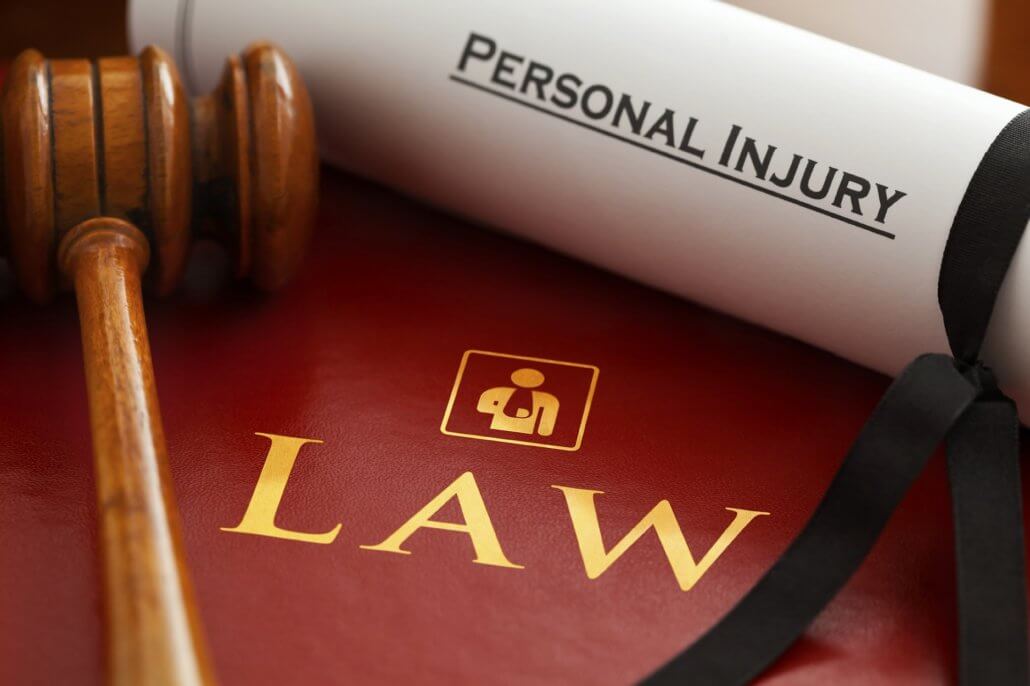After you’ve been injured and you start looking for a personal injury lawyer, you might feel overwhelmed with the process of picking the right attorney for you. You can narrow down your options rather quickly with a little research. This blog post provides some guidance for how to get that research started.
Choose the Correct Practice Area

Two of the more common types of personal injury accidents are vehicle accidents and slip or trip and fall accidents. Most personal injury attorneys have experience in these and sometimes several additional practice areas, but not all of them have experience in every type of accident case. You can narrow down your choices first by eliminating any attorneys who don’t list the type of accident you suffered in their practice areas.
Practice areas might include:
- Vehicle accidents, including truck accidents, pedestrian accidents, motorcycle accidents, and car accidents;
- Slip or trip and fall accidents;
- Wrongful death;
- Medical malpractice, including birth injuries;
- Product liability;
- Construction and other workplace accidents;
- Premises liability (when you suffer injuries on private or public property);
- Dog bite injuries;
- Nursing home injuries;
- And more.
Read Reviews
Read the reviews on the firm’s webpage. Also, read reviews on Google and social media sites. The reviews on an attorney’s webpage will almost always be positive, but they can give you an insight into the attorney as a person and a lawyer. Reviews elsewhere can help you get a feel for whether previous clients have had legitimate complaints about the firm or a particular attorney at the firm.
Interview Your Short List
Once you have a list of three or four attorneys who you think you might like, interview those attorneys. Personal injury attorneys almost always offer free initial consultations for this purpose. At an initial consultation, you can get a feel for the attorney’s experience and personality, and the attorney can give you a preliminary opinion about the strength of your case.
In addition to evaluating the attorney’s expertise, you should pick an attorney whom you like. Working with someone you don’t like is difficult—and if you and an attorney don’t mesh on a personal level, it might be hard to get through the stressful decision points in your case together. Personality conflicts can interfere with achieving the best outcome in your case.
Check the Firm’s Results
You can usually find a list of some of the firm’s results in previous cases on the firm’s webpage. You should also ask the attorney about the firm’s results during your initial case evaluation. Additionally, ask about the results record of the specific attorney who will work on your case. If more than one attorney will work on your case, ask about the results for all of those attorneys. This applies more to larger firms where one attorney might conduct the case evaluation and another attorney might engage in negotiations on your behalf.
Settlement or Litigation?
While everyone hopes they can settle for a fair and reasonable amount, that sometimes does not happen because the other side refuses to come to the table with a reasonable settlement offer. Should that happen, you may need to litigate your case.
Some attorneys are better at negotiating, while others are better at litigating. Choose an attorney who is comfortable and experienced with both. Be sure to ask the attorney how many cases they have settled and how many they have won at trial.
Make Sure the Attorney Has the Resources to Take Your Case to Trial
Most personal injury attorneys work cases on a contingency fee basis, which usually means you don’t have to pay them anything unless the attorney wins your case. If the attorney requests that you pay for depositions, expert witnesses, and other expenses upfront, that firm might not have enough resources to see your case through to the end. If an attorney advertises that you don’t have to pay anything unless you win, make sure the retainer contract states the same thing.
Discuss Your Case
During your initial consultation, if you like the attorney’s personality and think you might want to work with them, discuss the specifics of your case. Ask the attorney how they might handle the case. Of course, because the attorney hasn’t had time to research your case, they can’t go into detail, but their experience should allow them to give you a preliminary opinion about the strength of your case and discuss the merits of settlement or litigation. They might have even worked with the attorneys for the other side’s insurance company before.
Additionally, while an attorney can’t guarantee you a specific outcome in your case, if they have handled similar cases in the past, they can discuss what happened in those cases. This shows that the attorney has previous experience working on cases like yours.
Review All Paperwork
Once you choose an attorney, you’ll receive a retainer contract from the attorney to sign. Make sure you read it thoroughly before you sign it, especially the payment agreement section. If you have any questions about anything in the contract and other paperwork, don’t hesitate to ask your attorney for clarification or even seek the opinion of another attorney.
Understanding Payment
Ask your attorney to describe their payment agreement, and make sure you understand how it works. Most attorneys take a certain percentage of your final award if the case settles and an additional percentage if the case has to go to trial.
Ask the attorney how the firm handles costs. Some of the costs that come with a personal injury case might include:

- Investigative costs.
- Deposition costs.
- Arbitration and mediation costs.
- Expert witness costs.
- Case filing fees.
- Court reporter costs.
- Courier costs.
- Service of documents costs.
You might see these normal costs come up in the course of a personal injury case, but not all of these costs come up in every case. The costs you incur depend on your case and the defendant’s responses. For example, some cases might not require depositions, arbitration, or the use of expert witnesses. Other cases might require all of the above and more. Make sure you discuss all of these potential fees and costs with your personal injury lawyer.



